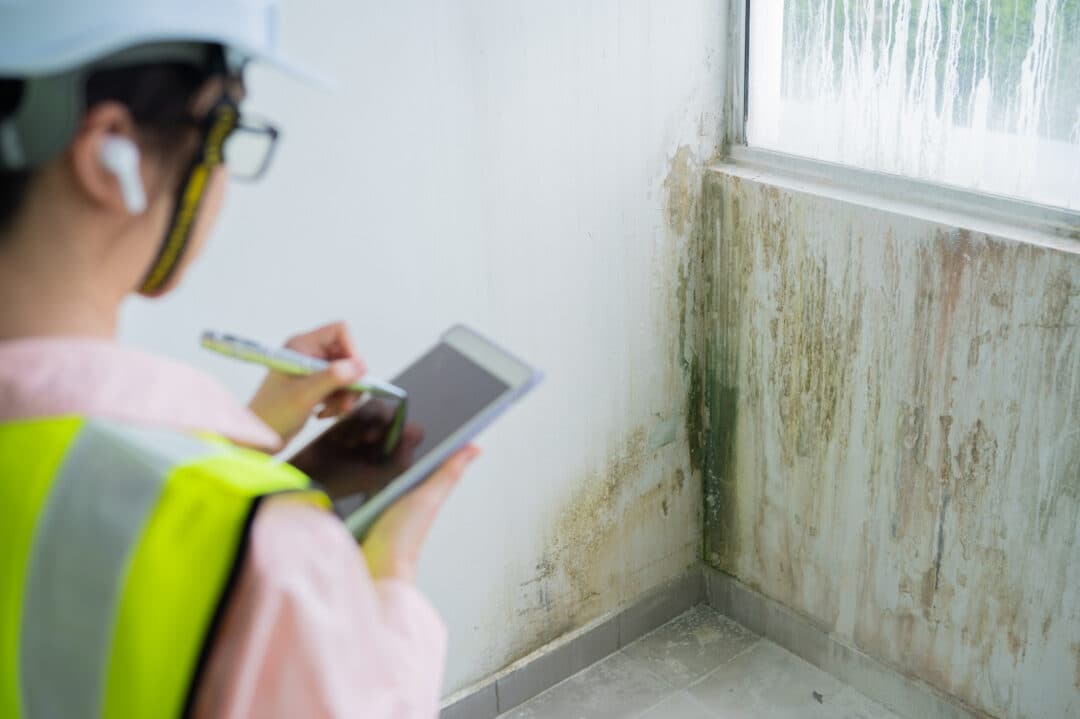Fire door safety: Q&A special

Fire door safety: A Q&A special
You may not give them too much thought but doors, especially fire doors and flat entrances, are one of the most important aspects of building safety. At Viewber, our fire door safety check service is one of our most popular – and vital. Read on to discover the fire door safety regulations you need to know and how we can help keep your tenants safe.
Q. Are there new fire safety regulations?
The Fire Safety (England) Regulations 2022 came into force on 23rd January 2023 so although not brand new, they are fairly recent. The Regulations implemented the majority of recommendations made to the Government in the Grenfell Tower Inquiry Phase 1 report. Regulation 10 pertains to the routine checking of fire doors, as these are crucial in preventing the spread of fire and smoke in buildings.
Q. Who is responsible for fire door checks?
Routine fire door checks should be managed by what is known as a ‘responsible person’. This could be the building owner (for example, the freeholder) or other persons having control of the premises (for example, a managing agent). It is a criminal offence to breach Regulation 10 and any other regulation in The Fire Safety (England) Regulations 2022.
Q. Do I need an expert to carry out fire door checks?
Routine fire door checks work under the assumption that a fire risk assessment has already evaluated the suitability of the fire doors. As the checks are to establish that self-closing devices are working and fire doors, including flat entrance doors, are in good repair, the person undertaking the check does not have to be a serving firefighter or a safety specialist. In fact, the Government says ‘the checks under Regulation 10 should be simple and basic. You should not need to engage a specialist to carry these out.’
Q. What does a fire safety door check comprise?
A Viewber undertaking a fire door safety check will have a strict checklist to work from. They will: identify if the door is an original or if it has been replaced; note whether the letterbox is jammed open; check for visual damage and defects to the door itself, to the frame and/or to the securing wall (this could be warping, rot or holes) ; visually inspect the condition of any glass, fittings, intumescent strips, smoke seals and ironmongery; record any gaps between the door and the frame, and note if the door won’t close fully. A Viewber will also test self-closing fire doors for their effectiveness.
Q. How do I know if the regulations apply to my property or building?
Regulation 10 mainly pertains to those responsible for blocks of flats that are rented socially or privately. If the top storey of your building is above 11m in height (typically, a building of more than four storeys), the ‘responsible person’ must:
· use best endeavors to check all flat entrance fire doors at least every 12 months; and
· carry out checks of any fire doors in communal areas at least every 3 months.
Q. Do I have to check flat entrance doors?
The Fire Safety Act 2021 clarified that flat entrance doors must be considered in the Fire Risk Assessment mandated by the Fire Safety Order. Flat entrance door checks require access to the individual property so the door can be checked on both sides.
Q. My building is below 11 metres, do I still have to perform fire safety checks?
The Fire Safety (England) Regulations 2022 do not replace previous fire door safety standards – they are in addition to. The Fire Safety Act 2021 has clarified that any residential building containing two or more sets of domestic premises are within the scope of the Fire Safety Order. General fire precautions in buildings of less than 11 metres are in place.
Q. Is there a crossover between fire safety and Awaab’s Law?
Indeed there is. While Awaab’s Law was introduced in response to the death of Awaab Ishak, who died from a respiratory condition caused by exposure to mould, the resulting law mandates prompt repairs pertaining to a broad range of serious health and safety matters in social housing, including fire hazards.
Q. Does Awaab’s Law apply to the private rental sector?
At the moment, Awaab’s Law only applies to the social housing sector but in Labour’s Renters’ Rights Bill, which is working its way through Parliament, it will also apply to the private rental sector. Providing the content is not amended, private landlords and letting agents will have to adhere to the same strict response timeframes as the social housing sector.
Q. What are the response timeframes set out in Awaab’s Law?
Currently, social housing landlords have to investigate hazards within 14 days, start repairs within a further seven days and make emergency repairs within 24 hours.
Q. Are there any other fire safety checks I should be aware of?
Smoke and Carbon Monoxide Alarm (Amendment) Regulations 2022 require private and social housing landlords to provide smoke and carbon monoxide alarms, and to check that each prescribed alarm is in proper working order on the day the tenancy begins, if it is a new tenancy. A Viewber can conduct and record the results of alarm tests on behalf of a landlord or property manager, reducing the number of times a professional has to visit a property.
Q. Are there other ways I can improve tenant fire safety?
Person-Centred Fire Risk Assessments (PCFRAs) should be completed where there are multiple individual dwellings within one building. A PCFRA is designed to identify vulnerable tenants most at risk from fire, to help prevent avoidable tragedies and to identify whether a Personalised Emergency Evacuation Plan (PEEP) is required. When booking a Viewber to complete a PCFRA, they will look for visual clues to identify a tenant’s fire risk and assess their ability to escape an emergency event.
Viewber is here to help keep your properties legally compliant and assist your team in conducting mandatory fire safety checks.
Let’s discuss how Viewber can support your fire safety schedule and make sure that you have an audit trail of your checks.
With access to 1000’s of Viewber Members throughout the UK, Viewber can help you stay compliant.
Book a meeting to discuss further.



